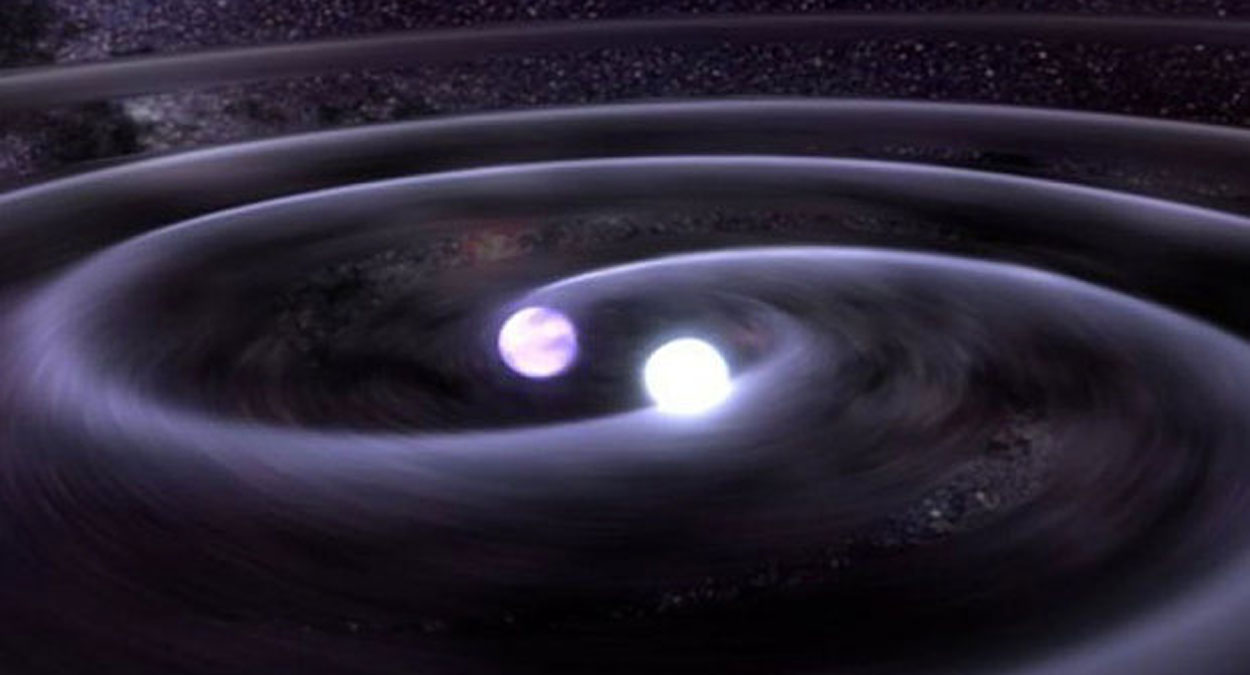What are gravitational waves and why are they important?
Discovery hailed as this century's biggest scientific breakthrough that could answer questions about the Big Bang itself

A free daily email with the biggest news stories of the day – and the best features from TheWeek.com
You are now subscribed
Your newsletter sign-up was successful
Scientists have today confirmed the existence of gravitational waves – exactly a century after they were first predicted by Albert Einstein.
"Their discovery... is certain to earn a Nobel Prize," said The Guardian's science editor, Ian Sample.
What are they and who has been looking for them?
The Week
Escape your echo chamber. Get the facts behind the news, plus analysis from multiple perspectives.

Sign up for The Week's Free Newsletters
From our morning news briefing to a weekly Good News Newsletter, get the best of The Week delivered directly to your inbox.
From our morning news briefing to a weekly Good News Newsletter, get the best of The Week delivered directly to your inbox.
Gravitational waves represent movements in the fabric of space-time created by major cosmic events, such as the collision of black holes. They can be likened to ripples in a pond.
Their existence was first proposed by Einstein and formed a key part of his general theory of relativity, but they have never before been detected.
However, in recent weeks, rumours began circulating that the decades-long search was over. Hundreds of scientists working on the Advanced Laser Interferometer Gravitational-Wave Observatory experiment in Washington State have been using laser detectors to seek out the cosmic ripples.
"They have constructed [two] tubular channels several kilometres long, down which they fire laser beams that bounce off a mirror at the far end," says the BBC's Phillip Ball.
A free daily email with the biggest news stories of the day – and the best features from TheWeek.com
"A gravitational wave would change one channel length more than the other, depending on its direction, slightly altering the interference between the two beams."
Why have they been so hard to find?
Because of the small size of the displacement created by the ripple, says The Guardian. "A wave from millions of light years away would distort a four kilometre laser beam by less than a thousandth of the diameter of the nucleus of an atom. Which is hard to spot."
Why are they important?
Their discovery, confirmed this afternoon, has been hailed by scientists as "the biggest scientific breakthrough of the century". It's claimed the find is even more significant than the discovery of the Higgs boson and marks the "birth of gravitational astronomy", says the Daily Telegraph.
"Quite apart from offering a completely new vindication of Einstein's theory, these results will deepen our understanding of stars and galaxies," British cosmologist Sir Martin Reese writes.
It could also answer fundamental questions about the moment of creation. "It will give a window into some of the most violent and energetic events in the cosmos; exploding stars, colliding black holes, maybe even the Big Bang itself," says Professor Martin Hendry, from the University of Glasgow.
[[{"type":"media","view_mode":"content_original","fid":"90708","attributes":{"class":"media-image"}}]]
-
 5 blacked out cartoons about the Epstein file redactions
5 blacked out cartoons about the Epstein file redactionsCartoons Artists take on hidden identities, a censored presidential seal, and more
-
 How Democrats are turning DOJ lemons into partisan lemonade
How Democrats are turning DOJ lemons into partisan lemonadeTODAY’S BIG QUESTION As the Trump administration continues to try — and fail — at indicting its political enemies, Democratic lawmakers have begun seizing the moment for themselves
-
 ICE’s new targets post-Minnesota retreat
ICE’s new targets post-Minnesota retreatIn the Spotlight Several cities are reportedly on ICE’s list for immigration crackdowns
-
 Epstein files topple law CEO, roil UK government
Epstein files topple law CEO, roil UK governmentSpeed Read Peter Mandelson, Britain’s former ambassador to the US, is caught up in the scandal
-
 Iran and US prepare to meet after skirmishes
Iran and US prepare to meet after skirmishesSpeed Read The incident comes amid heightened tensions in the Middle East
-
 Israel retrieves final hostage’s body from Gaza
Israel retrieves final hostage’s body from GazaSpeed Read The 24-year-old police officer was killed during the initial Hamas attack
-
 China’s Xi targets top general in growing purge
China’s Xi targets top general in growing purgeSpeed Read Zhang Youxia is being investigated over ‘grave violations’ of the law
-
 Panama and Canada are negotiating over a crucial copper mine
Panama and Canada are negotiating over a crucial copper mineIn the Spotlight Panama is set to make a final decision on the mine this summer
-
 Why Greenland’s natural resources are nearly impossible to mine
Why Greenland’s natural resources are nearly impossible to mineThe Explainer The country’s natural landscape makes the task extremely difficult
-
 Iran cuts internet as protests escalate
Iran cuts internet as protests escalateSpeed Reada Government buildings across the country have been set on fire
-
 US nabs ‘shadow’ tanker claimed by Russia
US nabs ‘shadow’ tanker claimed by RussiaSpeed Read The ship was one of two vessels seized by the US military